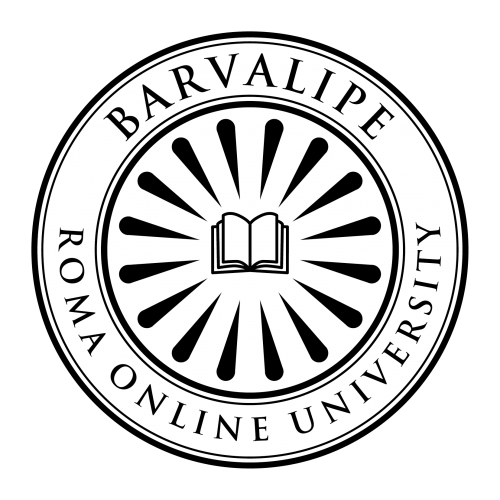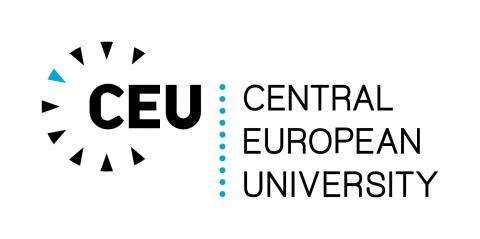8050
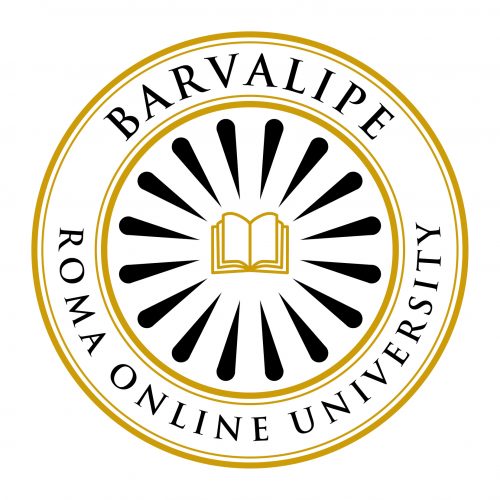
We are launching the second course of Barvalipe Roma Online University!
Bavarlipe Roma Online University is an online educational platform where Roma and non-Roma can access knowledge about the Roma identity(ies), history(ies) and culture(s) through a collection of high-quality lectures delivered by leading Roma scholars on topics ranging from the Roma Holocaust to Roma cultural productions. In partnership with Central European University (CEU), this project is part of ERIAC’s International Membership Engagement Initiative financed by the German Federal Foreign Office (FFO).
The second course of the Barvalipe Roma Online University, ‘European Roma History’, aims at developing historical narratives about the centuries of presence and contributions of Roma in various countries and regions of Europe and the world. To compensate for the lack of historical knowledge, the invited scholars will shape the understanding of Roma as integral to the mainstream national and regional histories. The course lectures will position Roma at the heart of the national historical discourses and not, as it has been until now, at its periphery.
The course will trace the local Roma histories in European countries and the Americas and include a reflection on the future of Roma communities in Europe.
To ensure that Roma and non-Roma benefit from the course, most lectures will be delivered in local languages, with subtitles provided in English and Romani language.
Stay tuned for the upcoming events!
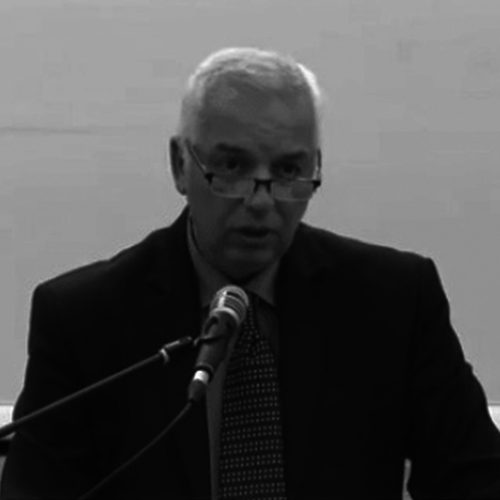
1. Arlism (sedentary) as a feature of the history of Roma in North Macedonia by Dr. Ljatif Demir – September 21, 2021 Д-р Љатиф Демир: Арлизмот (седентарноста) како одлика на историјата на Ромите во Македонија Апстракт: Био: Abstract: Bio: Lecture (Romanes subtitles): Lecture with English subtitles here: https://www.youtube.com/watch?v=_tyjxvyMQDs Webinar: https://www.facebook.com/EuropeanRomaInstituteERIAC/videos/4640920215953289
Предавањето говори за историјата на Ромите во Република Македонија од нивното доаѓање на македонското тло до денес. Покрај тоа говори и за нивната седентарност (арлизам), за бројот на Ромите на пописите направени во Румелискиот вилает во XVI и XIX век и за нивниот живот и за нивната интеракција со не-Ромите во Македонија.
На предавањето ќе се говори и за имињата и карактеристиките на ромските арлиски групи и за нивните занимања кои се менувале во текот на историјата од XIV до XX век.
Исто така, предавањето ги опфаќа и асимилацијата, дискриминацијата и етничката стратификација кон Ромите во Република Македонија низ историјата.
Д-р Љатиф Демир (1961 год. Скопје) е професор по ромски јазик, литература и култура на Унивезитетот во Загреб, Филозофски факултет – Отсек: Индологија, на Магистерските студии по Ромистика.
Повеќе од 30 години работи на унапредување на ромскиот јазик, литература и култура.
Автор е на стручни дела како што се: Граматика на ромскиот јазик, Култура на Ромите во Македонија, Ромите во македонската литература, музика и филм, Кратка историја на Ромите и др.
Зад себе има многу преводи на ромски јазик, учество на меѓународни конференции и симпозиуми, а свои предавања за ромските студии има на многу европски универзитети.
This lecture talks about the history of Roma in the Republic of North Macedonia, from their arrival on Macedonian soil until today. In addition, the lecture focuses on the sedentary (arlism) of Roma, their number in the censuses made in the Rumelia vilayet in the XVI and XIX century, their life and their interaction with non-Roma in Macedonia.
The lecture will also talk about the names and characteristics of the Roma Arli groups and their occupations that have been changing throughout the history from the XIV to the XX century.
The lecture also covers the assimilation, discrimination, and ethnic stratification of Roma in the Republic of Macedonia throughout history.
D.Sc. Ljatif Demir (1961, Skopje) is a professor of Romani language, literature and culture at the University of Zagreb, Faculty of Philosophy – Department: Indology, at the Master studies of Romistics.
He has been working on promotion of the Romani language, literature and culture for more than 30 years. He is the author of professional works such as: The Grammar of the Romani language, Culture of the Roma in Macedonia, Roma in the Macedonian literature, music and film, Short history on Roma and others.
He has completed numerous translations in Romani language, participated in various international conferences and symposia, and held lectures on Romani studies at many European universities.

2. History of Roma in Bulgaria by Prof. Dr. Hristo Kycuhukov – September 28, 2021 ИСТОРИЯТА НА РОМИТЕ В БЪЛГАРИЯ Акад. Христо Кючуков Pезюме: Ще бъде направен критичен анализ на отделните периоди и как те са рефлектирали върху бита, културата и традициите на ромите в България. Био: Abstract: Bio: Lecture (Romanes subtitles): Lecture with English subtitles here: https://www.youtube.com/watch?v=XNZO03E0lYc Webinar: https://www.facebook.com/EuropeanRomaInstituteERIAC/videos/553842739170855
Лекцията ще направи кратък обзор на историята на ромите на територията на България, като акцентът ще бъде поставен на следните исторически моменти от развитието на страната.
Акад. Христо Кючуков (проф. дпн) е немски учен, редовен преподавател към Силезийския университет в гр. Катовице, Полша и академик към Международната руска академия по педагогическо образование (МАНПО) – Москва. Той известен в Европа и в света с психолингвистичните си изследвания с ромски и турски деца, с изследванията си по интеркултурно образование, по ромски и турски език, по ромска история и култура.
Акад. Кючуков е директор на Ромския изследователски център в Университета в Катовице, Полша и президент на Европейската мрежа на ромите изследователи (European Roma Scholars Network), със седалище в Берлин.
През 90-те години на ХХ век акад. Кючуков въвежда обучението по ромски език за децата от началните и средните училища в България, както и програми на университетско ниво за обучение на ромски език в България и Словакия.
Той е и автор на над 800 научни публикации и книги за деца на ромски, английски, български, турски и арабски език.
The lecture will make an overview of the history of Bulgarian Roma starting from the Ottoman Empire, through the First and Second World Wars, during the Communism and after the democratic changes- last 30 years.
In the lecture Prof. Dr. Kycuhukov will refer to Archie materials from Bulgaria as well as to publication based on his own research and other researches.
Prof. Dr. Hristo Kyuchukov is a scientist (born and raised up in Bulgaria) full professor at the Silesian University in Katowice, Poland, and an academician at the International Russian Academy of Educational Sciences (МАНПО) in Moscow, Russia. He is known in Europe and worldwide for his psycholinguistic research with Roma and Turkish children, his research on intercultural education, on Roma and Turkish language, on Roma history and culture.
Prof. Kyuchukov is the Director of the Roma Research Centre at the University of Katowice, Poland and the President of the European Roma Scholars Network, based in Berlin.
In the 1990s, Prof. Kyuchukov introduced Roma language education for primary and secondary school children in Bulgaria, as well as university-level Romani language education programs in Bulgaria and Slovakia.
He is also the author of over 800 scientific publications and books for children in Romani, English, Bulgarian, Turkish and Arabic languages.

3. The Romani People of Spain. History and Present of a Supine Ignorance by Dr. Araceli Cañadas Ortega – October 5, 2021 Dr. Araceli Cañadas Ortega: EL PUEBLO GITANO DE ESPAÑA. HISTORIA Y PRESENTE DE UNA IGNORANCIA SUPINA Abstracto: El Pueblo Gitano, indio de origen, europeo de concreción y transnacional en su proyección, sigue siendo el gran desconocido, por no decir ignorado, tanto por la ciudadanía como por la comunidad científica y académica. Consideramos que la ausencia de los estudios gitanos, la romología, de los planes de estudio universitario españoles es consecuencia del secular racismo antigitano institucional. La cultura gitana forma parte de la cultura española desde hace 600 años durante los cuales ambas culturas han interactuado mutuamente. La existencia de un componente gitano en la cultura española y de un componente español en la cultura gitana es insoslayable. Para entender en su complejidad ambas culturas, tanto en el pasado como en el presente, es necesario incorporar la perspectiva gitana. Ignorancia supina (definición RAE) Bio: Araceli Cañadas Ortega, nació en Madrid en junio de 1969, pertenece a una prestigiosa familia de artistas flamencos, reconocida a nivel nacional e internacional. Licenciada en Filología Hispánica. Universidad de Alcalá (Madrid). 1992. Máster en Formación Profesional de Profesores de Español: Especialidad Español como Lengua Extranjera En 1992 entró en contacto por primera vez con el Movimiento Asociativo Romaní. Asistió a su primer Congreso Gitano en 1992, celebrado en Barcelona. Comenzó a trabajar para la Unión Romaní Española en 1994. Creó un programa de alfabetización y de acercamiento a las instituciones sociales para mujeres gitanas. Fue coordinadora del programa de apoyo escolar y profesora. En el año 2000 nació su única hija y se dedicó exclusivamente a ella. En 2007 regresó al Movimiento Gitano, colaborando en la creación del Instituto Español de Cultura Gitana. Fue asesora del Instituto Español de Cultura Gitana. También participó en el diseño de un método de enseñanza de la lengua romaní para los gitanos españoles, “¿Sar san? ¿Cómo estás?”. Desde 2011 hasta la actualidad es profesora honorífica de la asignatura “Gitanos españoles. Historia y Cultura” en la Universidad de Alcalá de Henares. Su actividad investigadora y profesional se centra en las áreas de Historia, Lengua y Cultura del Pueblo Gitano; así como en la Historia, Lengua y Cultura del Pueblo Gitano Español y en todas las relaciones y aportaciones entre la Cultura Gitana y la Cultura Española (Literatura, Teatro, Lengua, Artes…). Premio Solidario a la labor educativa, X Premios Enrique Maya Edición. Comunidad de Madrid, 2018 Es miembro de la Conferencia Permanente Camelamos Roma España. Abstract: The Romani People, Indian in origin, European in concretion and transnational in its projection, continues to be the great unknown, not to say ignored, both by the citizenry and by the scientific and academic community. We consider that the absence of Romani studies, ‘Romology’, from Spanish university curricula is a consequence of the secular institutional anti-Roma racism. Romani culture has been part of Spanish culture for 600 years during which both cultures have interacted mutually. The existence of a Romani component in Spanish culture and a Spanish component in Romani culture is unavoidable. In order to understand the complexity of both cultures, both past and present, it is necessary to incorporate the romani perspective. Bio: Degree on Hispanic Philology. Universidad de Alcalá (Madrid). 1992. Master on Professional Training of Spanish Language Teachers: Specialty Spanish as a Foreign Language. In 1992 she first got in contact with the Associative Romani Movement. She attended her first Romani Congress in 1992, held in Barcelona. She started working for the Spanish Romani Union in 1994. She created a literacy work and Social Institutions approach programs for Romani women. She was school support program coordinator and teacher. In 2000 her only daughter was born and she was dedicated exclusively to her. In 2007 she returned to the Romani Movement, collaborating in the establishment of the Spanish Romani Culture Institute. She was Spanish Romani Culture Institute assessor. She also participated in the design of a Romani language teaching method for Spanish Roma, “Sar san? ¿Cómo estás?” From 2011 until nowadays she is honorary professor of the subject “Spanish Roma. History and Culture” at Universidad de Alcalá. Her research and professional activities are at the areas of History, Language and Culture of Roma people; as well as History, Language and Culture of Spanish Roma people and all the relations and contributions among Romani Culture and Spanish Culture (Literature, Theatre, Language, Arts…). Solidarity Award for educational work, X Premios Enrique Maya Edition. Community of Madrid, 2018 She is a member of Camelamos Roma Standing Conference Spain. Lecture (Romanes subtitles): Lecture with English subtitles here: https://www.youtube.com/watch?v=65TzGYzGZug Webinar: https://www.facebook.com/EuropeanRomaInstituteERIAC/videos/284536789969281
Araceli Cañadas Ortega, was born in Madrid in June 1969, she belongs to a prestigious flamenco artists family, recognized nationally and internationally.
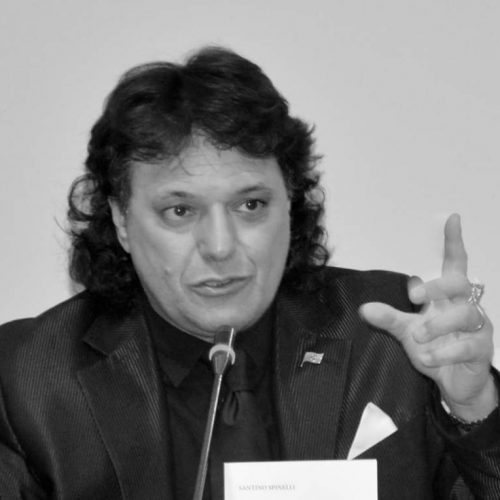
4. Roma and Sinti in Italy by Santino Spinelli – October 12, 2021 Santino Spinelli: Rom e Sinti in Italia Abstract: L’argomento della lezione è la presenza dei rom e sinti in Italia, del loro arrivo in 5 ondate migratorie dal XV secolo ad oggi, la consistenza numerica e la loro diffusione, i loro mestieri e altre peculiarità note e meno note. Un viaggio di conoscenza reale delle comunità romanès italiane al di là di stereotipi e falsi miti. Bio: Santino Spinelli, in arte Alexian, è un rom italiano. Musicista, compositore, poeta, saggista e docente universitario, è stato insignito del titolo di Commendatore della Repubblica Italiana, nonché del Premio Emilio Lussu. Nel 2016 gli è stata conferita la cittadinanza onoraria di Laterza (Taranto). Ha fondato l’Orchestra europea per la pace elevando la musica folklorica romanÍ a livello sinfonico. Laureato in Lingue e letterature straniere moderne e in Musicologia all’Alma Mater Studiorum – Università di Bologna, è autore di numerose pubblicazioni, tra cui ricordiamo Rom, genti libere (20132), Rom, questi sconosciuti (2016) e Una comunità da conoscere (2018). Abstract: The topic of the lesson is the presence of Roma and Sinti in Italy, their arrival in 5 migratory waves from the fifteenth century to today, the numerical consistency and their spread, their trades and other known and less known peculiarities. A journey of real knowledge of the Italian Romani communities beyond stereotypes and false myths. Bio: Lecture (English subtitles): Webinar: https://www.facebook.com/watch/live/?ref=watch_permalink&v=1020083045441853
Santino Spinelli, aka Alexian, is an Italian Roma. Musician, composer, poet, essayist and university teacher, he was awarded the title of Commander of the Italian Republic, as well as the Emilio Lussu Prize. In 2016 he was awarded the honorary citizenship of Laterza (Taranto). He founded the European Peace Orchestra by elevating Romani folk music to a symphonic level. Graduated in Modern Foreign Languages and Literatures and in Musicology at the Alma Mater Studiorum – University of Bologna, he is the author of numerous publications, including “Roma, free people” (2012), “Roma, these strangers” (2016) and “A community to know” (2018).

5. History and Identity – October 19, 2021 Ágnes Daróczi: Történelem és Identitás Absztrakt: Férjemmel, Bársony János jogásszal együtt közel öt évtizede kutatjuk a romák szokásait, kultúráját, történelmét. Történelmét, ami talán nincs is, hiszen nekünk nincs egyházunk, írott kultúránk, értelmiségünk és nincsenek máig intézményeink. Az írásos dokumentumok pedig többnyire a konfliktusokról szólnak. Útleírások és adókönyvek árulkodnak mégis a dolgos hétköznapokról, az együttélés évszázadairól. Ezekből a mozaikokból azonban pontosan látszik, hogy békés, együttműködő, a tudásából és szolgáltatásaiból megélni próbáló nép vagyunk… De van-e szabadságunk és lehetőségünk ezt megtanítani a világnak? Avagy ki alkotja meg közös történelmünk roma narratíváját? Rövid életrajz: Daróczi Ágnes a Romédia Alapítvány alapítója. Kulturális menedzser-újságíró, szerkesztő-műsorvezető, több kiadvány és kötet szerzője, valamint dokumentumfilm-készítő. Ő szervezte az első csoportos roma képzőművészeti kiállításokat, (1979, 1989, 2000) mely újdonság volt a szocializmus alatt. Alapítója és szerkesztője volt az első roma televíziós programnak a ”Patrin” Üzenet-Vorba-nak, mely hetente jelent meg 25 perces adásokkal a Magyar Televízióban (1992-1998). A televíziózás történetében első és második Roma Nap szerkesztője. Daróczi etnológusként, kulturális menedzserként és alkotóként is tevékenykedik. Daróczi Ágnes a Historia Romani dokumentumfilm sorozat (1999-2005) és a Zenei Memento – Auschwitz Requiem (2015) film készítője. Ember jogi aktivista, aki harcol a társadalmi igazságosságért és a roma emberek és intézmények elfogadásáért, valamint a cigany/roma kultúra értékeinek elismerésért Európában és azon túl. Írója és szerkesztője több könyvnek és kiadványnak, többek között a Pharrajimos: A romák sorsa a holokauszt idején (2005) és a Kali Trash (2015) című kiadványoknak. Tevékenységét és erőfeszítéseit számos díjjal és nemzetközi kitüntetéssel jutalmazták. Abstract: Together with my husband János Bársony we have been researching – for nearly five decades – the customs, culture and history of Roma. Roma history – that probably doesn’t even exist, since we do not have a church, a written culture, intelligentsia, and until today we do not have institutions. The written documents on Roma are mainly about conflicts. But in a few travel diaries and books of taxes we can find traces about the busy everyday lives and the centuries-long coexistence. From these mosaics you can see that we are a peace-loving, cooperating nation, that tries to make a living from its knowledge and services… The question is: do we have the freedom and possibility to teach these theses to the world? Or in other words: Who will create the Romani narrative of our common history? Short Bio: Agnes Daroczi is the founder of Romedia Foundation. She is a journalist, editor-presenter and a public educator, creator and an author of various books and documentary films. She organized the countrywide exhibition of Romani visual artists, which was a novelty during socialism. She was the founder and editor of the first Romani television program ’The Patrin’ running weekly 25 minute shows in the Hungarian Television (1992-1998). She organized the first and second Roma days in the history of Hungarian Television. Daroczi also works as an ethnologist, cultural manager and as an artist. Daroczi is the filmmaker behind the films Historia Romani documentary series (1999-2005) and the Memento in Music – Auschwitz Requiem (2015). She is a human rights activist, who fights for the social justice and the acceptance of Romani people and institutionalization and recognition of Romani culture in Europe and beyond. She is also the author behind various books and publications including Pharrajimos: The fate of Roma during the Holocaust (2005) and Kali Trash (2015). Her activity and efforts were rewarded with many awards and international honors. Lecture (Romanes subtitles) Lecture with English subtitles here: https://www.youtube.com/watch?v=pa_6uN08BB4 Webinar: https://www.facebook.com/EuropeanRomaInstituteERIAC/videos/4400810580000431

6. History of Roma People in Romania from the Perspective of Social Memory – October 26, 2021 Drd. Adrian-Nicolae Furtună: Istoria Romilor din România din Perspectiva Memoriei Sociale Rezumat: Lucrarea de față își propune să sublinieze importanța includerii istoriei romilor în narațiunea istoriei României în general. Includerea în narațiunea istorică din România a robiei romilor, a Holocaustului din România și a asimilării romilor din perioada comunistă are rolul de a crea punțile către împăcarea cu trecutul istoric și educarea noilor generații într-un spirit al valorilor europene. În prezentarea mea dezbat rolul conținutului istoric al memoriei colective și cel al memoriei sociale ca factori decisivi în conservarea și formarea identității etnice. De asemenea, pe baza documentelor de arhivă, demonstrez că dezvoltarea economică și culturală a romilor a fost blocată de factori specifici fiecărei perioade istorice luate în discuție: robie, perioada modernă, perioada interbelică, al Doilea Război Mondial, perioada comunistă. Scurtă biografie: Adrian-Nicolae Furtună a absolvit Facultatea de Sociologie și Asistență Socială a Universității din București, secția Sociologie, și programul de masterat Cercetare Sociologică Avansată. În prezent este doctorand cu o temă despre memoria socială a sclaviei romilor, la Institutul de Cercetare a Calității Vieții al Academiei Române. Din 2010 și până în prezent a publicat o serie de articole de istorie orală și articole științifice despre sclavia romilor și deportarea romilor în Transnistria, inclusiv: „De ce nu plâng? Holocaustul romilor și povestea lui adevărată ”(2012):„ Cultura romilor între „bărci de carton” și realitate (2015); Romii din România și Holocaustul. Istorie, teorie, cultură (2018); Sclavia romilor în Țara Românească. Fragmente de istorie socială. Vânzări / donații de copii. Căsătorii. Petiții pentru emancipare (2019). „Deportarea familiilor soldaților romi în Transnistria: între„ greșeli” administrative și imperativele biopolitice” (Furtuna et al., 2020). Este directorul Centrului de Cercetari Culturale și Sociale „Romane Rodimata” și consilier în cadrul Departamentului de Documentare și Cercetare al Centrului Național de Cultura a Romilor din România. Abstract: This paper aims to emphasize the need of including Roma history in the narrative of Romanian history in general. The inclusion of the Roma slavery, the Roma Holocaust and the assimilation of Roma from the communist period in the historical narrative of Romania has the role of creating bridges to reconciliation with the historical past and educating new generations in a spirit of European values. In my presentation I discuss the role of the historical content of collective memory and that of social memory as decisive factors in the preservation and formation of the ethnic identity. Also, based on archive documents, I demonstrate that the economic and cultural development of Roma was stopped by specific factors for each historical period under discussion: slavery, modern period, interwar period, World War II, communist period. Short Bio: Adrian-Nicolae Furtună graduated from the Faculty of Sociology and Social Work, the Department of Sociology of the University of Bucharest and the master’s program in Advanced Sociological Research from the same university. Currently prepares his PhD thesis on the social memory of Roma slavery, at the Quality of Life Research Institute of Romanian Academy. Since 2010 and until now he has published a series of oral history papers and scientific articles on Roma slavery and Roma deportation to Transnistria, including: „Why don’t they cry? Roma Holocaust and its true story” (2012): „Roma culture between „cardboard boats” and reality (2015); Romanian Roma and the Holocaust. History, theory, culture (2018); Roma slavery in Wallachia. Fragments of social history. Children sales/donations. Marriages. Petitions for emancipation (2019). „The deportation of Roma soldiers’ families to Transnistria: Between administrative “mistakes” and biopolitical imperatives” (Furtuna et al., 2021). He is the director of Cultural and Social Research Center „Romane Rodimata” and counselor in the Documentation and Research Department of National Centre of Roma Culture from Romania. Lecture (English subtitles) Webinar: https://www.facebook.com/watch/live/?ref=watch_permalink&v=208646781352348

7. The History of Russian Roma – November 2, 2021 Д-р. Надежда Деметр: История Русских Ромов (конец XVII – XXI веков) Аннотация: Лекция посвящена этнической истории, традициям, особенностям культуры и быта, особенностям миграций и формирования этнических групп, демографическим процессам и современному этносоциальному развитию ромов в России. Особенно остро этнический фактор отразился на реальных явлениях общественной жизни в эпоху политических и экономических потрясений, связанных с распадом таких многонациональных государств как СССР. Все эти направления деятельности подробно рассмотрены автором; сделан вывод о том, что все эти меры были задуманы и осуществлены без должной подготовки и рассмотрения и, естественно, закончились полным провалом. Даже такое замечательное начинание, как публикации на ромском языке, привело лишь к большому объему политической пропаганды; это подорвало любой интерес ромов к чтению. Короткая биография: Деметр Надежда Георгиевна, доктор исторических наук, профессор, ведущий научный сотрудник Центра европейских исследований Института этнологии и антропологии Российской академии наук. Окончила кафедру этнологии исторического факультета МГУ имени М.В. Ломоносова, самого известного университета в России. В 1988 году защитила кандидатскую диссертацию на тему “Семейная обрядность рома – кэлдэрари» (XIX-XX вв.)”. В 2000 году она защитила докторскую диссертацию на тему “Цыгане Европы: проблемы этнокультурной истории” в Институте этнологии и антропологии Российской академии наук. Она внесла значительный вклад в изучение этнополитического и этнокультурного облика ромов Европы. В настоящее время она работает над изучением комплекса проблем, возникших среди национальных меньшинств в странах Восточной Европы после крушения авторитарных режимов в контексте реформирования обществ. Имеет более 100 научных работ о ромах, в том числе 3 монографии. Abstract: The lecture is devoted to ethnic history, traditions, peculiarities of culture and everyday life, peculiarities of migration and formation of ethnic groups, demographic processes and modern ethnosocial development of Roma in Russia. The ethnic factor was particularly acute in the real phenomena of public life in the era of political and economic upheavals associated with the collapse of such multinational states as the USSR. All these areas of activity are considered in detail by the author; it is concluded that all these measures were conceived and implemented without proper preparation and consideration and, of course, ended in complete failure. Even such a wonderful undertaking as publications in the Romani language only led to a large amount of political propaganda; this undermined any interest of Roma in reading. Short Bio: Demeter Nadezhda Georgievna, Doctor of Historical Sciences, professor, Leading Researcher at the Center for European Studies at the Institute of Ethnology and Anthropology of the Russian Academy of Sciences. Graduated from the Department of Ethnography of the Faculty of History of Lomonosov Moscow State University, the most famous in Russia. In 1988, she defended her PhD thesis on the topic “Family ceremonialism the Roma-Kelderary (XIX – XX centuries).” In 2000, she defended her doctoral dissertation on the topic “Roma of Europe: Problems of Ethno-Cultural History” at the Institute of Ethnology and Anthropology of the Russian Academy of Sciences. She made a significant contribution to the study of the ethnopolitical and ethno-cultural appearance of the Roma of Europe. Currently, she is working on studying a set of problems that have arisen among national minorities in Eastern European countries after the collapse of authoritarian regimes in the context of reforming societies. She has more than 100 scientific works about Roma, including 3 monographers. Lecture (English subtitles) Webinar: https://www.facebook.com/EuropeanRomaInstituteERIAC/videos/271300398336886/

8. The Roma of the official journal of the French Republic – November 9, 2021 Jacques Debot: Le Rom du Journal Officiel de la République Française Résumé: L’historiographie, l’histoire, les historiens et les Tsiganes… Les poètes et la littérature disent de nous que nos semelles sont faites de vent. Alors quelles traces peut-on laisser avec des semelles de vent ? Quelles traces pouvons-nous laisser dans les sources écrites, des sources écrites par les autres, jamais par nous ? Ces quelques pages sur ʺLe Rom du journal officiel de la République Françaiseʺ sont avant tout une mise en garde contre une possible distorsion de la recherche universitaire, pour interroger la production des sources, pour éviter aux chercheurs de conclure du relatif à l’absolu. Pour les mettre en garde contre la fascination qu’exerce la tératologie, cette étude des anomalies des êtres vivants. On dit que les peuples heureux n’ont pas d’histoire… On dit moins souvent qu’un peuple dans la misère peut rapporter beaucoup d’argent. J’ai écrit l’importance de ne pas confondre la partie avec le tout, ne pas confondre un pourcentage de Tsiganes dans la difficulté (à peine plus important que dans le reste de la société) avec la totalité du peuple tsigane sur le sol de France. Je développe dans ces quelques page la réflexion de Mme Nadège Ragaru, à savoir que ʺnos trajectoires sociales ne se limitent pas au seul déclassementʺ Biographie: Je suis né 10 ans après la fin de la guerre, dans une famille encore pleine d’oncles et de tantes et d’aïeux, de cousines et de cousins. Entré dans la vie active dès l’obtention de mon baccalauréat, j’y suis resté, passionné par cette école très technique de chantiers, de défis, de contraintes et de réalisations dans les charpentes et les bâtiments. Jusqu’à ce jour où mon engagement politique a fait de moi un assistant parlementaire. C’est d’ordinaire un métier réservé aux élèves sortis de grandes écoles, souvent de Sciences Po, mais qu’exercent néanmoins quelques rares autodidactes capables de répondre aux demandes du député ou du sénateur qui les emploie. C’est un métier où on apprend, on observe, on travaille beaucoup, on prend des risques, et on finit par connaître les mécanismes de notre société, à tous les échelons où les hommes et les femmes font société : la famille, l’association, la commune, le département, la région, l’Etat, l’Europe, etc. Et les Tsiganes ? Ils m’appellent par téléphone et me disent : – Mon bon cousin, j’ai reçu une bien mauvaise lettre de l’administration … Abstract: Historiography, history, historians and Gypsies (les Tsiganes) … Poets and literature say of us that our soles are made of wind. Thus, what kind of traces can we leave, with soles of wind? What traces can we leave in written sources, sources that are written by others, never by us? These few pages about “The Roma of the official journal of the French Republic” are, above all, a warning against the possible distortions of academic research, and aim at questioning the production of the sources themselves, and to prevent researchers from leaping from the relative to the absolute in their conclusions. I warn them against the fascination with teratology, this study that focuses on anomalies in living things. It is said that happy people have no history … It is less often said that a people in poverty can nonetheless generate a lot of revenue. I write about the importance of not confusing a part with the whole, of not confusing a small percentage of Gypsies that find themselves in difficulty (not a much greater percentage than the rest of society) with the totality of the Gypsy people who live in France. I articulate, in these few pages, the reflection of Mrs. Nadège Ragaru, namely that ʺour social trajectories are not only limited to downward mobilityʺ Short Bio: I was born, a decade after the end of the war, into a family still full of uncles, aunts, relatives, cousins. I started working as a carpenter as soon as I obtained my high school diploma, and I continued working in this field, fascinated by this very technical learning made of construction sites, challenges, constraints and achievements in carpentry and construction. Until the day when my political commitment turned me into a parliamentary assistant. This is usually a profession reserved for those who have graduated from elite academic institutions such as Sciences Po, but who nonetheless include a few self-taught people capable of responding to the demands of the deputy or senator who employs them. It is a job in which one learns, observes, works a lot, takes risks, and ends up understanding the processes and mechanisms of our society, at all its different levels: the family, the association, the municipality, the department, the region, the state level, Europe, etc. And the Gypsies? They call me on the phone and say: – My good cousin, I received a very bad letter from the administration … Lecture (English subtitles) Webinar: https://business.facebook.com/EuropeanRomaInstituteERIAC/videos/1042635582976168/

9. Swedish Traveller/Roma history, from past to present – November 16, 2021 Britt-Inger Hedström Lundqvist: Svensk Resande/Romsk historia från dåtid till nutid Abstrakt: Historia handlar inte bara om det som hänt utan också om vad man vill dölja och vad man vill lyfta fram. Den som skriver historia väljer själv hur en händelse beskrivs. Historieskrivaren beskriver historia ur sitt eget perspektiv och bestämmer vem som är ond eller god, ren eller smutsig, ärlig eller oärlig. Ni ska nu få lyssna på min korta beskrivning av historien om Romanifolken och den antiziganism som har funnits och finns i Sverige och Europa. De första svenska noteringarna finns i Stockholm stads Tänkebok den 29 september 1512. I boken står det om en okänd folkgrupp med främmande utseende som har annorlunda seder och ett obegripligt språk som har kommit in i landet. De är ett 30-tal familjer som slagit sig ner i staden. Reformatorn Olaus Petri omnämner dem samma år som “tatare”, kanske för att han trodde att de tillhörde det ryska folket Tatarer. Gruppen omnämns i tänkeboken som ”egyptier” och likställs med pilgrimer. Pilgrimer skulle under denna tidsperioden respekteras, så de fick allmosor och tak över huvudet helt enligt de normer som gällde för mottagandet av främlingar. Dessa människor anses idag vara den första immigrationen av Romanifolk till Sverige och Norden. Romanifolken utsätts under hela 1900-talet för diskriminering och antiziganism. De utreds, inventerades, registrerades och stigmatiserades allt mer till följd av detta. Romanifolk sågs som ett hot mot folkhemmet och den rationella och moderna människan som skulle växa fram i Sverige. Romanifolkens traditionella levnadssätt och starka familjekänsla passade inte in det nya rena Sverige. År 2000 bekräftas det att minoriteten romer/resande består av fem grupper, Resandefolket, svenska Romer, finska Romer, utomnordiska Romer och nyanlända Romer. Romanifolken i Sverige lever både i nutiden och i historien. I berättelsen om Romanifolken i Sverige finns övergrepp och ett utanförskap där majoritetssamhället och de som haft makt på många sätt brustit och inte velat ta ansvar. Men det är också en berättelse om stark gemenskap inom gruppen där släktbanden är viktiga. Det finns även berättelser om vänskap, gemenskap och mänsklighet hos majoritetsbefolkningen och vi fortsätter att hela tiden att skriva vår historia. Bio: Britt-Inger Hedström Lundqvist föddes i Skellefteå Västerbotten december 1958 in i en resandefamilj. Britt-Inger har arbetat med sociala frågor hela sitt yrkesverksamma liv och har läst in de ämnen som hennes arbete har behövt så som psykologi, psykoterapi, sociologi, pedagogik, behandlingsmetoder med mera. Examina: Högskoleexamen, Socialt arbete, 2011 Examen: Filosofie magisterexamen, etnologi 2012 Britt-Inger har varit med i flera antologier bland annat i ”Att störa homogenitet” och funnit med i redaktionen av boken ”Dinglarens väg – Vorsnos drom” som var den första boken i Sverige där personer från Resandefolket var med och skrev sin egen historia. Hon är sekreterare i resandeföreningen RUNG och är ansvarig utgivare för magasin DIKKO. Stolta och starka Resandefolket C-uppsats http://uu.diva-portal.org/smash/record.jsf?pid=diva2%3A510075&dswid=6447 Abstract: History does not only tell us what happened, it is also about what is hidden and what is highlighted. The one who writes history chooses how an event is described. The storyteller writes history from their own perspective and decides who is bad or good, pure or dirty, honest and dishonest. You are now about to listen to my short description of the history of the Romani people and the anti-ziganism that was and still is existing in Sweden and Europe. The first Swedish notes on this matter are written in the Stockholm Annals on September 29th 1512. In the book there is talk about a strange community of people with foreign looks, strange ways and an incomprehensible language who has entered the country. There are 30 something families who set up camp in the city. The reformer Olaus Petri refers to them the same year as ‘tatare’, perhaps thinking they belonged to the Russian Tater people. The group is described in the Annals as ‘Egyptians’ and given pilgrim status. Pilgrims were to be respected so they were given alms and roof over their heads, all according to the rules regarding the welcoming of strangers. These people are viewed today as the first Roma immigrants in Sweden and the Nordic countries. The Romani people are met with discrimination and anti ziganism throughout the 20th century. They are investigated, categorized, registered and stigmatized because of this. Romani people were seen as a threat to the welfare state and the rational and modern man that were to emerge in Sweden. The Roma traditional way of living and strong family values did not fit the idea of the new and neat Sweden. In the year 2000 it is recognized that the Roma/Traveller minority consists of five groups: the Traveller people, the Swedish Roma, the Finnish Roma, the non-Nordic Roma and the newly arrived Roma. The Romani people of Sweden exists both in the present and in the past. In the story of the Romani people of Sweden there is abuse and alienation where the majority and those in power failed in many ways and did not take responsibility. But it is also a story of a strong community within the group and of the importance of family. There are also stories of friendship, kinship and kindness in the majority population and we are keeping on writing our history. Short Bio: Britt-Inger Hedström Lundqvist was born in Skellefteå Västerbotten December 1958 into a tarveller family. Britt-Inger worked in the social field her entire professional life and studied the subjects e such as psychology, psychotherapy, sociology, pedagogy, treatment methods and so on. She has a university degree in Social Work (2011) She holds a MA of Ethnology (2012) Britt-Inger participated in several anthologies including ‘Disturbing homogeneity’ and worked as editor in the book ‘Dinglarens väg – Vorsnos drom’, the first book written in Sweden with Traveller people took part in writing their own history. She is a secretary in the traveller association RUNG and the editor of the newspaper DIKKO. Proud and strong. The traveller people, a bachelor study http://uu.diva-portal.org/smash/record.jsf?pid=diva2%3A510075&dswid=6447 Lecture (English subtitles) Webinar: https://business.facebook.com/EuropeanRomaInstituteERIAC/videos/872967856751835/
http://uu.diva-portal.org/smash/get/diva2:510075/FULLTEXT02.pdf
http://uu.diva-portal.org/smash/get/diva2:510075/FULLTEXT02.pdf
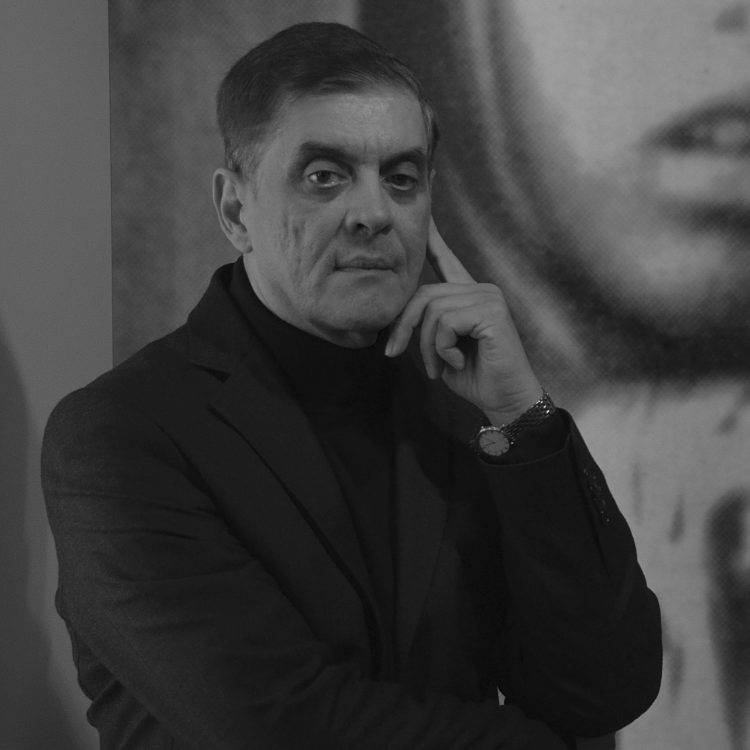
10. History of the Holocaust and the Civil Rights Movement of the Sinti and Roma – November 23, 2021 Romani Rose: Geschichte des Holocaust und der Bürgerrechtsbewegung der Sinti und Roma Abstract: Der Vortrag gliedert sich in drei Teile. Zunächst geht er auf die systematische Erfassung, die Ausgrenzung, die Deportation und schließlich die Vernichtung von 500 000 unserer Menschen durch die Nationalsozialisten und ihre Helfer in Europa ein. Die nationalsozialistischen Vernichtungsstätten wie Auschwitz, Chelmno oder Treblinka, wie Dachau, Buchenwald oder Bergen-Belsen sind heute zu Symbolen geworden – mittlerweile auch für den systematischen Völkermord an den Sinti und Roma im nationalsozialistisch besetzten Europa. Es gibt kaum eine Familie bei den Sinti und Roma, die mit dem Namen „Auschwitz“ nicht den Verlust von Angehörigen verbindet. Im zweiten Teil zeigt der Vortrag den schwierigen Weg auf, den die wenigen Überlebenden des Holocaust und ihre Nachkommen nach dem Krieg gehen mussten, um nach jahrelangem Kampf endlich als rassisch verfolgte Opfer anerkannt zu werden und Entschädigungen zu erhalten. Die Aufarbeitung des jahrzehntelang geleugneten Holocaust an der Minderheit, sowie die Herausstellung der ideologischen und personellen Kontinuitäten aus der NS-Zeit, waren von Anfang an zentrale Bestandteile des politischen Engagements der Bürgerrechtsbewegung und des Zentralrats. Im dritten Teil geht der Vortrag auf die Arbeit und die Erfolge des Zentralrats Deutscher Sinti und Roma seit den frühen achtziger Jahren ein. Es ging – und geht – bei der Arbeit des Zentralrats immer darum, die Angehörigen der Minderheit endlich vom Stigma des Fremden zu befreien und das Bewusstsein zu schärfen, dass Sinti und Roma seit Jahrhunderten in Deutschland sowie in den anderen europäischen Ländern beheimatet sind, deren Geschichte und deren Kultur sie mitgeprägt haben. Nach fast vierzig Jahren Bürgerrechtsarbeit ist in der deutschen Gesellschaft ein allmählicher Wandel im Umgang mit unserer Minderheit und in ihrer öffentlichen Wahrnehmung zu spüren. Politisch wurde viel erreicht, gesellschaftlich muss aber noch ein weiter Weg gegangen werden. Kurz Vita: Romani Rose wurde 1946 in Heidelberg geboren. Dort war er bis 1982 selbständiger Kaufmann. Bei der Gründung des Zentralrats im Jahre 1982 wurde er von den Delegierten der Mitgliedsorganisationen – damals neun, heute 18 Landesverbände und regionale Vereine – zum Vorsitzenden gewählt und seither alle vier Jahre auf den Mitgliederversammlungen in seinem Amt bestätigt. Ab dem Jahre 1991 übernahm Rose die Geschäftsführung des Dokumentations- und Kulturzentrums Deutscher Sinti und Roma in Heidelberg. Er ist bei den Regierungen von Bund und Ländern und auch im Ausland seit vielen Jahren bekannt für seine Entschlossenheit und für die konsequente und unnachgiebige Arbeit. Abstract: The lecture is divided into three parts. Firstly, it deals with the systematic registration, exclusion, deportation and finally the extermination of 500,000 of our people by the National Socialists and their helpers in Europe. The National Socialist extermination sites such as Auschwitz, Chelmno or Treblinka, like Dachau, Buchenwald or Bergen-Belsen have become symbols today – meanwhile also for the systematic genocide of the Sinti and Roma in Nazi-occupied Europe. There is hardly a family among the Sinti and Roma who does not associate the name “Auschwitz” with the loss of relatives. In the second part, the lecture shows the difficult path that the few survivors of the Holocaust and their descendants had to take after the war in order to finally be recognised as racially persecuted victims and receive compensation after years of struggle. Coming to terms with the Holocaust against the minority, which had been denied for decades, as well as highlighting the ideological and personal continuities from the Nazi era, were central components of the political commitment of the civil rights movement and the Central Council from the very beginning. In the third part, the lecture looks at the work and successes of the Central Council of German Sinti and Roma since the early 1980s. The work of the Central Council has always been about liberating members of the minority from the stigma of being foreigners and raising awareness of the fact that Sinti and Roma have been at home in Germany and in other European countries for centuries, whose history and culture they have helped to shape. After almost forty years of civil rights work, a gradual change in the way our minority is treated and perceived by the public can be felt in German society. Politically, much has been achieved, but socially there is still a long way to go. Short Bio: Romani Rose was born in Heidelberg in 1946. There he was a self-employed businessman until 1982. When the Central Council was founded in 1982, he was elected chairman by the delegates of the member organizations – at that time nine, today 18 state associations and regional associations – and since then he has been confirmed in office every four years at the general meetings. In 1991, Rose took over the management of the Documentation and Cultural Centre of German Sinti and Roma in Heidelberg. He has been known for many years by the federal and state governments and also abroad for his determination and for consistent and unyielding work. Lecture (English subtitles) Webinar: https://business.facebook.com/EuropeanRomaInstituteERIAC/videos/181331194206959/

11. The History of Roma in Kosovo – November 30, 2021 Edis Galushi: Historia e romëve të Kosovës Abstrakt: Duke filluar me paraqitjen e hershme të romëve në botë, Edis Galushi shtjellon më detajisht jetën e përdithshme të romëve në Kosovë në ligjeratën e tij “Historia e romëve të Kosovës”. Përveq fakteve historike dhe rrugëtimit historik të romëve, ai në pika të shkurtëra shpjegon për jetën e romëve në Kosovë dhe zhvillimin e jetës sociale, ekonomike dhe politike. Video ligjerata e përgatitur enkas për këtë prezentim jep një përmbledhje të shkurtër mbi sferat e rëndësishme të romëve të Kosovës duke iu referuar të kaluarës dhe të tashmes. Biografi e shkurtër: Edis Galushi u lind më 06.03.1989 në Prizren. Krahas aktivizmit rinor, ai ka kontribuar në përfshirjen e fëmijëve romë, përveç inicimit të gazetës së parë për fëmijët romë; Ai gjithashtu ka kompozuar për herë të parë këngë për fëmijë në gjuhën rome, duke u mundësuar fëmijëve të marrin pjesë në festivale të ndryshme. Pas regjistrimit në universitet, Edis Galushi shkroi artikuj të ndryshëm për jetën shoqërore, ekonomike dhe politike të komunitetit rom, të cilat janë botuar në portale dhe gazeta të ndryshme. Vlen të përmendet kontributi i tij në trashëgiminë e kulturës dhe letërsisë rome përmes poezisë dhe shfaqjeve teatrale, shumicën e të cilave i ka shkruar vetë dhe është ndër autorët e rrallë romë në Kosovë. Ai zakonisht shihet të veprojë si një aktivist i pavarur kulturor, duke ngritur zërin e tij për përfaqësimin e mirë të kulturës rome në përgjithësi. Nga viti 2007-2014 ka punuar si gazetar në Radio Televizionin e Kosovës. Ai ka marrë diplomën e tij BA në gjuhë dhe letërsi angleze nga Universiteti i Prishtinës (Kosovë) dhe Universiteti i Vilniusit (Lituani), dhe së fundmi ka fituar diplomën master në Universitetin e Zagrebit. Aktualisht punon si mësues dhe përkthyes për gjuhën shqipe, angleze dhe serbe. Abstract: Starting with the early appearance of Roma in the world, Edis Galushi in his lecture “History of Roma in Kosovo” elaborates in more detail on the daily life of Roma in this country. In addition to the historical facts and the historical journey of the Roma, he briefly explains the life of the Roma in Kosovo and the development of social, economic and political life. The video lecture prepared especially for this occasion gives a brief overview of the important areas of Kosovo’s Roma with reference to the past and present. Short Bio: Edis Galushi was born on March 6, 1989 in Prizren. In addition to youth activism, he has contributed to the inclusion of Roma children, besides the initiation of the first Roma children’s newspaper; he has also composed for the first time songs for children in the Roma language, enabling the children to participate in different festivals. After enrolling at university, Edis Galushi wrote various articles about the social, economic and political life of the Roma community, which have been published in various portals and newspapers. It is worth mentioning his contribution to the heritage of Roma culture and literature through poetry and theatrical performances, most of which he wrote himself and is among the rarest Roma authors in Kosovo. He is usually seen to act as an independent cultural activist, raising his concerns on the good representation of the Romani culture in general. From 2007-2014 he worked as a journalist at Radio Television of Kosovo. He received his BA diploma in English language and literature from both University of Pristina (Kosovo) and University of Vilnius (Lithuania), and has recently gained his MA degree at the University of Zagreb. Currently, he works as a teacher and translator for Albanian, English and Serbian. Lecture video (English subtitles) Webinar: https://business.facebook.com/EuropeanRomaInstituteERIAC/videos/473223257468092/

12. 'Looking in one's hand': a lecture on the history of Roma in Britain – December 7, 2021 Damian Le Bas: ‘Looking in one’s hand’: a lecture on the history of Roma in Britain Abstract: Romani people became a constant presence in Britain in the early modern period. Early encounters with royalty and others were often peaceful, but within a century had led to expulsions and even an attempt at genocide. An acquired reputation for trickery coexisted with the fulfilment of crucial roles in the economy in both peacetime and war. Out of suspicion and intolerance grew relationships of mutual dependence and, at least in the arts, romanticisation. By the twentieth century, many Romani Travellers had left for the New World: for those who stayed, the adoption of new vehicles and jobs meant they were increasingly mobile, visible and ripe to be regarded as a social problem. Travellers became a cause of popular panic met by various political actions, with the 21st century now seeing some of the most hostile measures enacted in hundreds of years. In recent decades there has also been rapid growth in new forms of Romani self-expression, and a slow increase in engagement with formal education. The last three decades have also witnessed a large increase in the number of Romani people living in Britain, as families arrived from Central and Eastern Europe following the fall of Soviet Communism. The result is a country in which many Romani subcultures and various dialects of the Romani language coexist, though not always in awareness of each other. Short Bio: Damian Le Bas is a writer from the south coast of England. His first book, The Stopping Places: a Journey through Gypsy Britain, was a mixture of travelogue, family memoir and reflections on Romani history and language. It won the Somerset Maugham award, a Royal Society of Literature Jerwood award, was BBC Radio 4 Book of the Week and shortlisted for the Stanford Dolman travel book of the year. His next book is due to be published by Chatto & Windus in 2023. Lecture video Webinar: https://business.facebook.com/EuropeanRomaInstituteERIAC/videos/172721148351020/
Damian is a former editor of Travellers’ Times and an occasional broadcaster, presenting the critically acclaimed BBC film A Very British History: Romany Gypsies in 2019. He has also worked on theatrical and fine art projects, including the first Roma Biennale in Berlin in 2018. He has written essays and reviews for Granta, the Guardian, the Literary Review and others. Damian lives in Worthing, the seaside town where he grew up, with his wife, actor and writer Candis Nergaard. He read theology at St John’s College, Oxford, graduating with the highest first in his year in 2006.
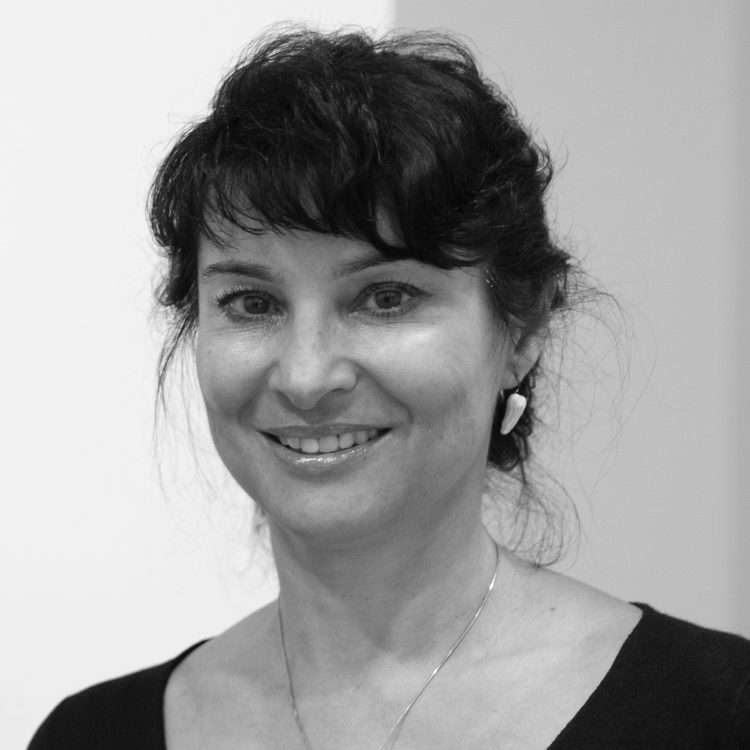
13. The History of the Roma in the Czech Lands – December 14, 2021 Jana Horváthová: Dějiny Romů v českých zemích Abstrakt: Dějiny Romů v českých zemích, od jejich první zmínky, přes jejich prvotní přijímání i zprvu relativně podivuhodné vyznění pojmu Cikán, jména i přezdívky. Budou nastíněny příčiny změny vztahu majoritního obyvatelstva k Romům a jeho důsledky včetně represí. Přesto i v době největších proticikánských represí na přelomu 17. a 18. století počíná proces trvalého usazování Romů na Moravě, který pokračuje celé 19. století. Po vzniku první Československé republiky je věnována pozornost už tehdy kontroverznímu zákonu o potulných cikánech. Po vzniku protektorátu Čechy a Morava, kdy byly již po mnichovské dohodě okleštěné české země obsazeny nacistickou německou Říší, se pak uplatňují ve vztahu k Romům všechna zásadní nařízení platná již s předstihem v Německu. Došlo tak k hromadné deportaci místní romské populace do KT Auschwitz II-Birkenau, kde její naprostá většina – 90 % – zahynula. Právem se mluví o genocidě Romů a Sintů. Po osvobození k nám přicházejí i podporou náborářů Romové ze Slovenska, kteří u nás dostávají byty i na Slovensku obtížně hledanou práci zejména v severních průmyslových oblastech, kde také dnes existují nejproblémovější sociálně vyloučené romské lokality. Totalitní režim usiloval o násilnou asimilaci tzv. cikánů, k tomu cíli měla pomoci i likvidace tradičních hodnot a kultury. Krátký životopis: PhDr. (philosophiae doctor) Jana Horváthová, narozena v Brně 1967, pochází z rodiny původních českých, respektive moravských Romů; žije a pracuje v Brně. Je historička a muzeoložka, spoluzakladatelka (1991) Muzea romské kultury a jeho dlouholetá ředitelka. Ve své vědecké práci se zaměřuje na dějiny Romů v první polovině 20. století. Zajímá se o historické skupiny Romů, které přicházely do českých zemí od konce 17. století a během 2. světové války se staly předmětem nacistické genocidy; zaměřuje se především na metodu orální historie. Přednáší o historii, duchovní a hmotné kultuře Romů. Vydala Kapitoly z dějin Romů. Praha, 2002; Devleskere čhave. Svedectvom starých pohľadníc. Poprad, 2006; Poklad Romů / Amare somnaka. Tajemství romského šperku: Muzeum romské kultury, 2016; Horváthová, Jana a další: To jsou těžké vzpomínky, Větrné mlýny, 2021. Abstract: The history of the Roma in the Czech lands: Their first mention in the historical record, their initial acceptance, and the relatively remarkable usage of the concept of the “Gypsy”, the names and the nicknames. The reasons for the change in the majority population’s attitude towards the Roma and its consequences, including the repression of the Roma, will be outlined. Even at the time of the greatest anti-Gypsy repression, at the turn of the 17th and 18th centuries, the process of the permanent settlement of the Roma in Moravia began and continued throughout the 19th century. After the establishment of the first Czechoslovak Republic in 1918, attention was paid to the already controversial law on forcibly settling the “wandering gypsies”. After the creation of the Protectorate of Bohemia and Moravia, when the truncated Czech lands were occupied by the Nazi German Empire after the 1938 Munich Agreement, all the fundamental regulations already in force in Germany applied in relation to the Protectorate Roma. This resulted in the mass deportation of the local Roma population to the Auschwitz II-Birkenau Concentration Camp, where the vast majority – 90% – perished. It is correct to call this the genocide of the Roma and Sinti. After the 1945 liberation, Roma from Slovakia also came to the Czech lands with the support of recruiters, who found them the housing that was so difficult to find in Slovakia, especially in the northern industrial areas of Bohemia and Moravia, where the most problematic, socially excluded Roma localities exist to this day. After 1948, the totalitarian regime sought the forced assimilation of the so-called gypsies, and the destruction of their culture and traditional values was meant to aid that assimilation. Short Bio: PhDr. (philosophiae doctor) Jana Horváthová, born in Brno in 1967, comes from a family of indigenous Czech, respectively Moravian Roma; lives and works in Brno. She is a historian and a museologist, a co-founder (1991) of the Museum of Romani Culture and is its long-time director. Her scholarly work focuses on the history of the Roma in the first half of the 20th century. She is interested in historical Roma groups that were coming to the Czech lands from the end of the 17th century and during the WWII became the subject of Nazi genocide; she mainly focuses on the method of oral history. She lectures on the history, spiritual and material culture of the Roma. She published Kapitoly z dějin Romů. (Chapters from the History of the Roma), Prague, 2002; Devleskere čhave. Svedectvom starých pohľadníc (The Testimony of Old Postcards). Poprad, 2006; Treasure of the Roma / Amare somnaka. The secret of Romani Jewellery: Muzeum romské kultury, 2016; Horváthová, Jana and others: To jsou těžké vzpomínky (They are painful memories), Větrné mlýny, 2021. Lecture video (English subtitles) Webinar: https://business.facebook.com/EuropeanRomaInstituteERIAC/videos/211977544431416/

14. Romanies in the Americas – January 11, 2022 Ian Hancock: Romanies in the Americas Abstract: Romanies have been in the Americas for over five centuries, when three transportees arrived with Columbus on his second voyage in 1498. Since then, the English, the Scottish, the Spanish, the Portuguese and even the Swedish governments have all seen North and South America and the Caribbean as convenient places whence to banish our people. The greatest number, however, arrived in the 19th century as a result of conflict in the Austro-Hungarian Empire and–especially–of the abolition of slavery in Romania. The opening up of Europe in the 1990s has seen an ongoing “new wave” of arrives; today, perhaps between a quarter and a third of the total world Romani population live in the Americas. Short Bio: Prof. Dr. Ian F. Hancock has been active in the Romani movement since his participation in the First World Romani Congress in 1971. He represented the IRU in the United Nations and in UNICEF, and was appointed by U.S. President Clinton to represent our people on the U.S. Holocaust Memorial Council. He was also a member of the Texas State Holocaust and Genocide Commission, and has been awarded the Norwegian Rafto Foundation’s International Prize for Human Rights, and the University of Wisconsin’s Gamaliel Chair in Peace and Justice. He has two honorary doctorates (Umeå and Konstantin Universities) and in 1918 Queen Elizabeth II made him an Officer of the Most Excellent Order of the British Empire. Lecture video Webinar Part1: https://business.facebook.com/EuropeanRomaInstituteERIAC/videos/405438484602124/ Webinar Part2: https://business.facebook.com/EuropeanRomaInstituteERIAC/videos/410392787439249/

15. History of Roma in Serbia – January 18, 2022 Slavica Denić: Istorija Roma u Srbiji Apstrakt: Istorija Roma od vremena dolaska na balkasko poluostrvo do kraja XX veka obuhavata nekoliko značajnih perioda. To je pre svega doba vladavine Turaka, kada su Romi u većem broju stizali u južnoslovenske zemlje. Prve vesti o Romima u Srbiji potiču iz vremena vladavine cara Dušana (1331-1335). Podaci iz najstarijeg sačuvanog turskog popisa iz 1491. godine pokazuju da su Romi tada živeli u Prizrenu, Nišu, Kruševcu i Smederevu. U 17. i 18. veku dogodila su se velika imigraciona kretanja Roma u srpske zemlje. Tome su doprineli velika seoba srpskog naroda u južnoslovenske zemlje pod austrougarskom vladavinom 1690. godine, kao i prelazak Roma iz Rumunije u Srbiju 1711. godine, kada je ukinuto ropstvo za Rome u Rumuniji. U tom periodu mnogobrojne romske porodice i grupe doselile su se u Šumadiju, moravske predele, Kosovo, i naročito Banat, Bačku i Srem. Period značajan za istoriju romske zajednice u Srbiji je i doba balkanskih ratova i Prvi svetski rat. Učešće Roma i njihove žrtve kako u balkanskim ratovima, tako i u Prvom svetskom ratu, nije dovoljno istraženo. Značajan deo istorije istorije Roma, ne samo u Srbiji, već i širom Evrope je razdoblje tokom Drugog svetskog rata i holokaust Roma. U periodu od 1941-1945. godine, na tlu Jugoslavije organizovan je 71 koncentracioni logor, 329 istražnih zatvora, a građani tadašnje Jugoslavije bili su zatočenici još 69 logora u Evropi. Osim masovnih streljanja, Romi su bili zatočenici gotovo svih logora u Srbiji, a najveći broj njih je bio u koncentracionom logoru Sajmište u Beogradu. Život Roma u Srbiji u posleratnom periodu karakteriše nedovoljno nastojanje da se rešavaju problemi romske zajednice. Krajem šezdesetih i početkom sedamdesetih godina osnovana su prva romska društva, ali se aktom značajnijeg društveno političkog organizovanja Roma smatra Osnivačka skupština Društva ’’Rom’’ 1969. godine u Beogradu. Tada su predstavnici romskog naroda istupili sa jasno formulisanim programom i političkim zahtevima. Dugo vremena su romski aktivisti ukazivali na to da je nepriznavanje statusa nacionalne manjine najveća prepreka društvenoj i političkoj participaciji Roma. Sve do 2002. godine, Romi su u ustavno pravnom smislu i u zvaničnoj statistici vođeni kao ’’etnička grupa’’ ili kao ’’ostali’’. Status nacionalne manjine pripadnicima romske zajednice u Republici Srbiji priznat je 2002. godine, donošenjem Zakona o zaštiti prava I sloboda nacionalnih manjina, na osnovu čega ostvaruju pravo na zaštitu nacionalnog, kulturnog i jezičkog identiteta. Predstavnici Roma poreklom iz Srbije su svojim radom značano doprineli i međunarodnom pokretu i borbi za emancipaciju Roma. Kratka biografija: Dr. Slavica Denić je diplomirala na Filozofskom fakultetu u Novom Sadu na Katedri za filozofiju. Magistrirala je na interdisciplinarnim studijama Univerziteta u Novom Sadu na odseku za Menadžment u obrazovanju, a zvanje doktora nauka stekla je iz oblasti rodnih studija takođe na Univerzitetu u Novom Sadu. Autorka je više naučnih radova na temu socijalnog uključivanja Roma i Romkinja, sa posebnim fokusom na obrazovanje romske populacije. Radno iskustvo sticala je u Radio televiziji Vojvodine, Ministarstvu za ljudska i manjinska prava Vlade Republike Srbije i Pokrajinskom sekretarijatu za privredu, zapošljavanje i ravnopravnost polova AP Vojvodine. Priključila se Timu za socijalno uključivanje i smanjenje siromaštva 2018. godine, gde je zadužena za podršku izgradnji kapaciteta nacionalnih i lokalnih institucija kako bi se osigurali razvoj i implementacija strateškog okvira koji se tiče socijalnog uključivanja Roma i Romkinja. Abstract: The history of Roma from the time of their arrival on the Balkan Peninsula to the end of the 20th century covers several important periods. This is primarily the time of Turkish rule when a large number of Roma arrived in South Slavic countries. The first news about the Roma in Serbia comes from the reign of Emperor Dušan (1331-1335). Data from the oldest preserved Turkish census from 1491 show that the Roma lived in Prizren, Nis, Krusevac, and Smederevo. In the 17th and 18th centuries, there were large immigration movements of Roma to Serbian lands. The migration of the Serbian people to the South Slavic countries under Austro-Hungarian rule in 1690, as well as the transfer of Roma from Romania to Serbia in 1711, when slavery for Roma in Romania was abolished, contributed to that. During that period, many Roma families and groups moved to Šumadija, Moravian regions, Kosovo, and especially Banat, Bačka, and Srem. A period important for the history of the Roma community in Serbia is the era of the Balkan Wars and the First World War. The participation of Roma and its victims in the Balkan Wars and the First World War has not been sufficiently researched. A significant part of the Roma history, not only in Serbia but throughout Europe, is the period during the Second World War and the Roma Holocaust. In the period from 1941-1945. on the territory of Yugoslavia were organized 71 concentration camps, 329 pre-trial prisons, and the citizens of the former Yugoslavia were detainees of another 69 camps in Europe. Apart from the mass shootings, Roma were detainees in almost all camps in Serbia, and most of them were in the Sajmište concentration camp in Belgrade. The life of Roma in Serbia in the post-war period is characterized by insufficient efforts to solve the problems of the Roma community. The first Roma societies were founded in the late 1960s and early 1970s, but the Founding Assembly of the Roma Association in 1969 in Belgrade is considered an act of significant socio-political organization of Roma. At that time, the representatives of the Roma people presented a formulated program and political demands. For a long time, Roma activists have pointed out that non-recognition of the status of a national minority is the biggest obstacle to Roma’s social and political participation. Until 2002, the Roma were constitutionally and officially registered as an “ethnic group” or as “others”. The status of a national minority for members of the Roma community in the Republic of Serbia was recognized in 2002, with the adoption of the Law on Protection of Rights and Freedoms of National Minorities, based on which they exercise the right to protection of national, cultural and linguistic identity. Representatives of Roma from Serbia have significantly contributed to the international movement and the struggle for the emancipation of Roma. Short Bio: Dr. Slavica Denić graduated from the Department of Philosophy at the Faculty of Philosophy, University of Novi Sad. She obtained her Master’s degree in Interdisciplinary Studies of Management in Education at the University of Novi Sad, where she also gained her Ph.D. in the field of Gender Studies. She is the author of several scientific papers on the topic of social inclusion of Roma men and women, with a particular focus on the education of the Roma population. She gained her work experience in Radio Television of Vojvodina, the Ministry of Human and Minority Rights of the Government of the Republic of Serbia, and the Provincial Secretariat for Economy, Employment, and Gender Equality of the AP Vojvodina. She joined the Social Inclusion and Poverty Reduction Unit in 2018. She is in charge of providing support to capacity building of national and local institutions to ensure the development and implementation of a strategic framework for the social inclusion of the Roma. Lecture video is coming soon Zoom link: https://us02web.zoom.us/j/88480855512
Barvalipe Roma Online University Coordinators:
